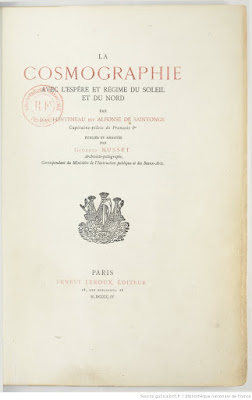Portuguese and Spanish navigations and discoveries aroused huge curiosity through Europe at the beginning of the 16th century. The case of France and its maritime awakening provides a striking example of this Iberian impact.
The expeditions by Giovanni da Verrazano, the Parmentier brothers, Jacques Cartier and Jean-François de Roberval, all taking place during the reign of Francis I (1515-1547), are intimately connected with previous Iberian nautical achievements. Verrazano’s and Cartier’s expeditions to North America during the 1520s and 1530s, in search of the Northern Passage to Asia, were decisively influenced by the impact of the first circumnavigation of the world (led by the Portuguese Ferdinand Magellan and the Spanish Juan Sebastian Elcano). The French attempts to reach the Indian Ocean in the 1520s and 1530s, like the Parmentier brothers’ expeditions, were also connected with the previous impact of Portuguese navigations to Asia and the hiring of Portuguese pilots in France.
Portuguese pilot Jean Alphonse played a critical role in the transmission of Portuguese nautical knowledge to France. In the service of France during Cartier’s and Roberval’s expeditions to Canada, Jean Alphonse made contributions to the cartographical school of Dieppe, created to support the onset of French maritime expansion. Based on his personal experiences with the Portuguese and French, Alphonse wrote the report of his voyages and a cosmography, both in French. Alphonse’s case alarmed the Portuguese authorities, who tried to convince him, without success, to return to Portugal.
Worried with the circulation of Iberian cosmographical knowledge to France, the Spanish and Portuguese ambassadors in France were tasked with preventing any Iberian pilot or cartographer to work for France. They resorted to private negotiations, bribery, espionage at Court. Throughout the 16th century, Iberian ambassadors also had spies in several ports and they tried to block the departure of any significant French fleet. This story was later repeated with Elizabethan England. In order to prepare successfully any oceanic expedition, knowledge was crucial. Both Portugal and Spain built the first global maritime empires by learning how to master nautical knowledge. Analysis of the Iberian nautical rutters circulating to France, England and the Netherlands during the Renaissance, and studies on the impact they had for the preparation of French, English and Dutch expeditions are goals of the RUTTER project. [Nuno Vila-Santa]





No comments:
Post a Comment